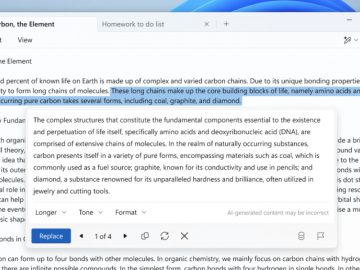 Image: eWeek
Image: eWeek
To cement its influence on the intersection of AI and scientific research, Google.org, the charitable arm of Google, has announced a $20 million fund to advance innovatory scientific discoveries through AI. The announcement came during the inaugural AI for Science Forum, hosted in London by Google DeepMind and the Royal Society on Monday.
Coupled with $2 million in Google Cloud Credits, the fund will empower academic and nonprofit organizations to tackle complex scientific challenges across disciplines such as rare disease research, experimental biology, materials science, and sustainability. Selected recipients will also benefit from Google’s internal expertise and collaboration with its AI teams, including DeepMind and Google Research, as well as external specialists.
Building on the Success of AlphaFold
Google’s announcement follows the remarkable achievements of AlphaFold, the AI-powered system developed by Google DeepMind. AlphaFold recently earned its creators, Demis Hassabis and John Jumper, the Nobel Prize in Chemistry for revolutionizing protein structure prediction—a development that has already accelerated advancements in drug discovery, disease treatment, and bioengineering. Over two million researchers in 190 countries have used AlphaFold to address malaria, parasitic disease, and Parkinson’s disease.
Hassabis said he “believes artificial intelligence will help scientists and researchers achieve some of the greatest breakthroughs of our time” in a statement issued to TechCrunch. “We hope the launch of our $20 million fund will help encourage further collaboration between the private and public sectors, kick-start renewed excitement for the power of AI and science, and inspire others to join us in funding this important work.”
Long-Term Impact and Goals
This initiative aligns with big tech’s broader efforts to support innovation. Google’s announcement follows Amazon’s recent pledge of $110 million in grants and credits for AI researchers. By offering financial support and computational resources, Google.org aims to solidify its role as a catalyst for scientific progress.
The fund will prioritize investments in academic and nonprofit organizations using “AI to address increasingly complex problems at the intersections of different disciplines of science,” according to a blog post published by Maggie Johnson, VP and global head of Google.org. “Fields such as rare and neglected disease research, experimental biology, materials science and sustainability all show promise.”
Google’s investment builds on its history of philanthropic contributions, with over $200 million previously directed to AI-driven scientific projects over the last five years. Past beneficiaries include organizations like Materiom, which is developing innovative biodegradable plastics, and Doctors Without Borders, tackling antibiotic resistance.
While no specific number of recipients has been disclosed, the winning applicants are anticipated to deliver significant advancements similar to AlphaFold’s achievements and set new benchmarks in how AI intersects with science.
Explore our list of the top AI companies redefining industries and pushing the boundaries of technology.





